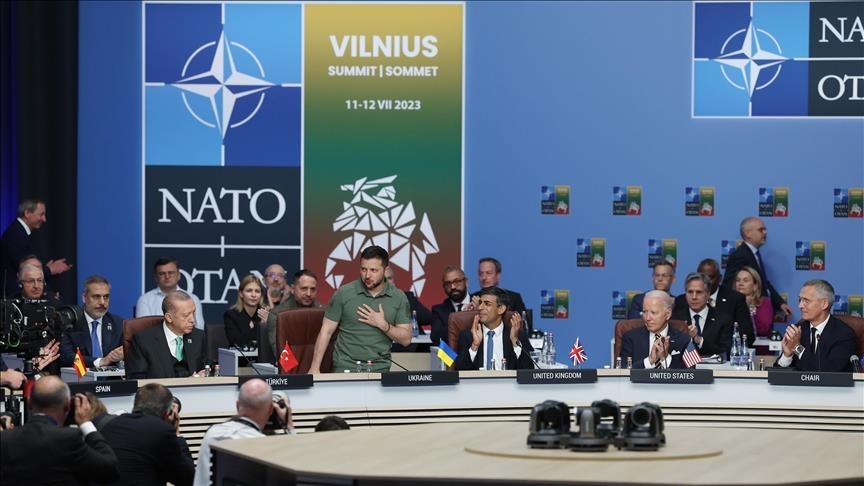
NATO’s Vilnius summit concluded on Wednesday with strong support for Ukraine as allies agreed on a three-part package “to bring Ukraine closer to the alliance,” while G-7 countries signed a joint declaration on Kyiv’s security guarantees.
In his closing remarks, NATO chief Jens Stoltenberg said that the allies just concluded a “historic” NATO summit in Lithuania with agreement on the “most detailed and robust defense plans since the Cold War.”
Underlining that they also reaffirmed to bring Ukraine closer to the alliance, and step up support for the long haul, Stoltenberg said NATO and Ukraine will meet in the NATO-Ukraine Council to discuss matters as equal partners from now on.
“I also welcome the major new announcements of military support made by NATO allies at this summit,” he said.
Recalling the military aid provided by allies worth tens of billions of dollars and the training of tens of thousands of Ukrainian troops by allies, he said: “As Ukraine continues to liberate territory, we will stand by them for as long as it takes.”
He also mentioned the new multi-year assistance package for Ukraine, which was approved on Tuesday to help transition Ukraine from Soviet-era to NATO standards and make their forces fully interoperable with NATO.
“Ukraine is now closer to NATO than ever before,” he said, referring to the removal of the requirement for a membership action plan for Ukraine.
“We will issue an invitation for Ukraine to join NATO when allies agree that conditions are met,” he reiterated.
“This sends a clear, strong, and united message from our Vilnius summit.”
Regarding his meeting with Indo-Pacific partners, the NATO chief said: “Beijing’s global assertiveness and Moscow’s war against Ukraine require even closer coordination between NATO, the EU, and our Indo-Pacific partners.”
NATO faces “the most serious” security situation in decades, but allies are rising to the challenge, he said and added: “NATO is more united than ever, standing strong in defense of our people, and our values.”
He also thanked Lithuanian President Gitanas Nauseda and the Lithuanian government for hosting the historic summit.
